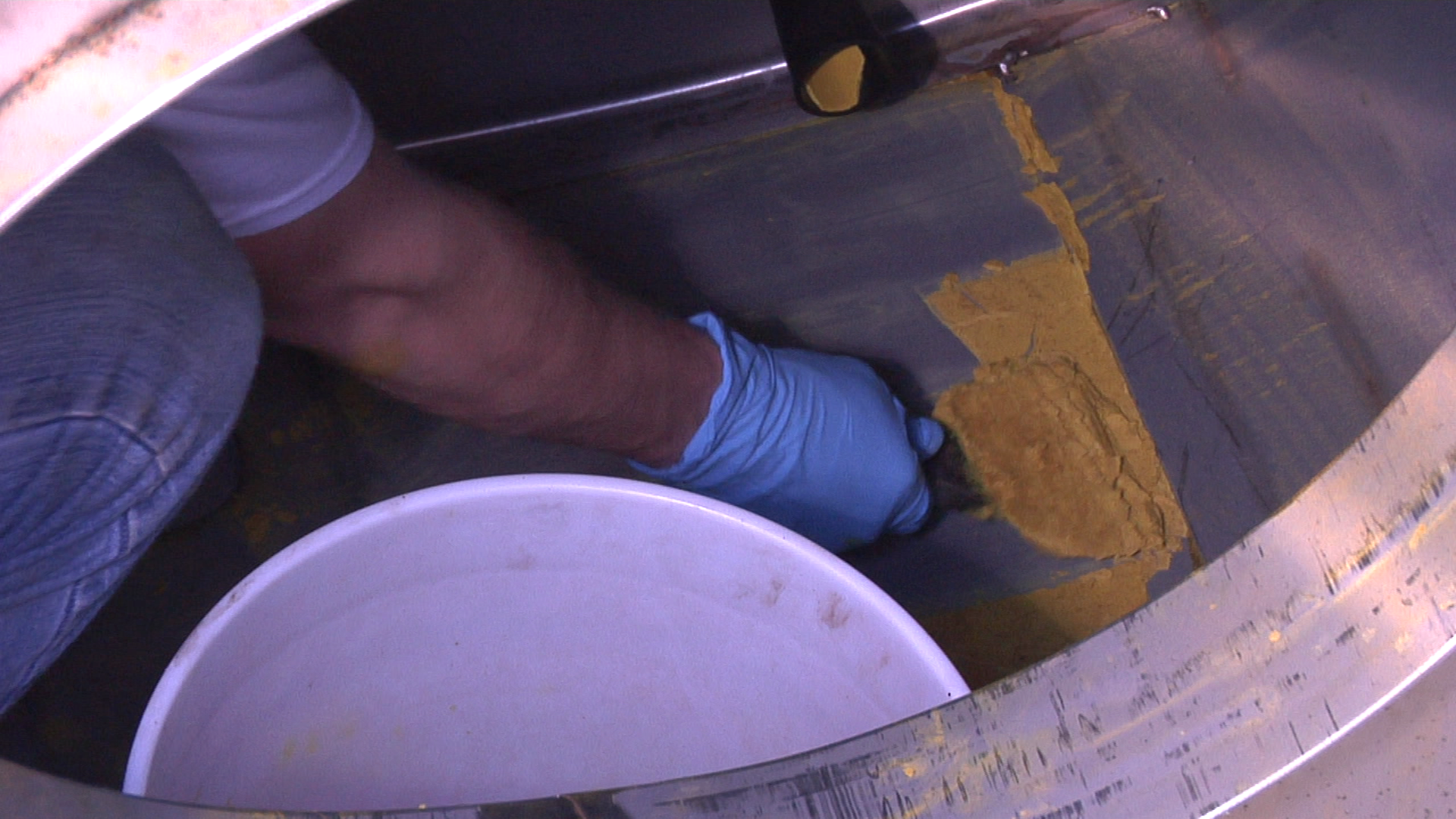

It’s spraying season again! The question today is,
“What’s on your spray trailer or in your sprayer loading area?”
Water and the products you are applying to the crop are givens, but what other things do you like/need to have close by?
I’ll share some things that we always have around, which may match up with how you like to do things or could give you some new items to consider.
COMPATIBILITY AGENT
The first word in this heading gives it away. If you’re mixing more than one crop input item with water or fertilizer, the first question you’ve got to ask yourself or your supplier is about the compatibility in the tank of that combination. The second question is what you will do if they don’t mix perfectly. Unfortunately, if products don’t mix well, you have very little time to rectify the situation.
On our farm, we always have at least one jug of Convert on our spray trailer so as things are being mixed together we can add a little bit of Convert to the tank and avoid problems. If you want whatever you’re spraying to work its best, every ounce of that product should leave your sprayer and end up on your soil or your crop.
If there is a buildup of gunk in your tank, what does that tell you?
Adding Convert to a tankmix keeps the products in solution so they end up in your field, not in your tank. The big side benefit here is that tank cleanout becomes much easier, too. This product is growing in popularity very quickly and the reviews from farmers have been glowing.
CHLORINE NEUTRALIZER
If you’re using rural water, city water, or any water source that has been treated with chlorine, it is simple and inexpensive (less than 10 cents per acre) to turn that chlorine from a biological killer in the spray tank and in the soil into chloride, which is an essential crop nutrient.
THE SOLUTION IS CALLED BIO-PREP.
For pennies an acre, chlorine in the water is completely neutralized. The most obvious way this helps is when you are applying natural microbes to your fields, but Bio-Prep helps take away any issues with chlorine affecting other crop inputs, too. Best of all, there’s no waste to dispose of or issues mixing Bio-Prep in your spray tank.
If you want any biological or Natural product to work, you can’t have chlorine killing those microbes. Use Bio-Prep.
PH ADJUSTER
Are you testing the pH of your spray tank with each of the combinations you are mixing up through the season? If not, it’s a good idea to do so. Here’s why. If your pH is too high or too low, you’re decreasing the performance of the products you are spraying. If you’re adding citric acid or ammonium sulfate to the mix to acidify your spray solution, that could help. However, have you checked to see what impact these products have had on spray solution pH? It might surprise you to know that citric acid often drops solution pH well BELOW the desired level. Ammonium sulfate often changes pH only for a matter of minutes, and by the time you reach the field the pH is right back up, higher than you’d like it to be.
WATER-RITE
The best product we’ve found for tying up hard water ions (that reduce herbicide performance) and keeping spray solution pH in the ideal window (5.5 to 7.0) is Water-Rite. For 95% of water sources used in spraying, Water-Rite is the total fix for these issues, and it’s really inexpensive. Like Convert that was mentioned earlier, growers have also noticed easier tank cleanout when using Water-Rite.
TANK CLEANER
Since I’ve already discussed a couple of products that help reduce tank cleanout issues, it’s time to talk about a chemical tank cleaner that finishes the job and makes it much safer to switch from one product to the next without crop injury.
Erase is the name of the tank cleaner we have used for the last several years. In the opposite way of a product like Water-Rite, Erase INCREASES SOLUTION pH greatly. By raising the pH, Erase pulls product that is stuck to the side of your tank or the inside of your spray boom and brings that product back into solution so you can flush it out of the system. Best of all, it doesn’t leave a film that just sticks back down to your tank (like household ammonia will often do).
Read the labels and MSDS (material safety data sheets) of the products you are spraying. Sometimes they ask for something other than a commercial tank cleaner to get that particular product out of the tank efficiently. More frequently than not, though, Erase is the go-to product for cleaning out a sprayer, so have some on hand.

Not having a tank cleaner available opens you up to sludge in the tank and booms, not to mention delays when you most need to be out spraying.
SUMMARY
As you begin to pick up the fertilizers, herbicides, fungicides, insecticides, Naturals, and other products you intend to spray this season, invest a few bucks in the products listed above to avoid problems, ensure better performance, reduce re-sprays, and make tank cleanout much easier this year.
